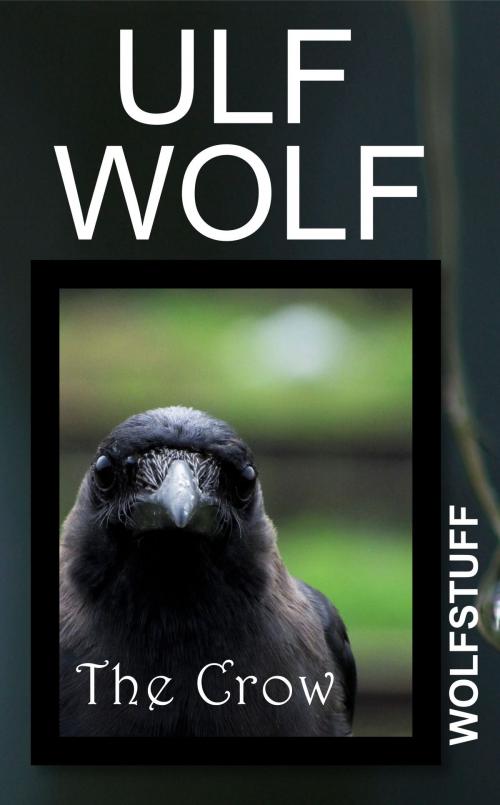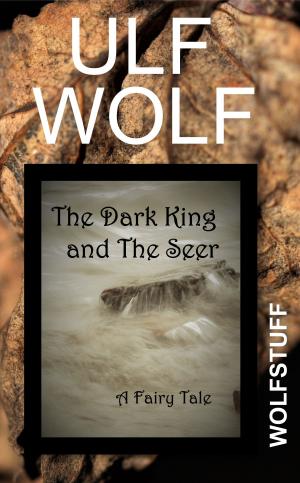| Author: | Ulf Wolf | ISBN: | 9781301199853 |
| Publisher: | Ulf Wolf | Publication: | December 3, 2012 |
| Imprint: | Smashwords Edition | Language: | English |
| Author: | Ulf Wolf |
| ISBN: | 9781301199853 |
| Publisher: | Ulf Wolf |
| Publication: | December 3, 2012 |
| Imprint: | Smashwords Edition |
| Language: | English |
Once upon a time the crow was the most accomplished of all songbirds.
And he knew it.
And the world knew it.
Every day, and long into the evening, even after the sun had set and as the stars began to twinkle, you could hear him match their glitter note for note.
Families, at their evening meal, would stop eating, and make no noise with spoons and forks and plates—would even stop chewing—when he set out again in song, whether from afar or near, perhaps he would sit in their garden apple tree. And no one at table would say a word until the crow had finished his song—so enticing were his melodies, so pure his notes. Even the stars seemed to twinkle a little less while he sang the better to hear.
Once done, the crow would shift slightly on his apple-tree branch and cock his head in the direction of the candle-lit kitchen the better to hear the silence softly cease by resumed movement of spoon to soup, of fork to mouth, and by the father praising to his children the song just sung.
And then he would as often as not spread his wings and roam the air for another meal to interrupt, for another attentive silence and subsequent fatherly praise.
Most other birds were jealous of his song, this in varying degree. The wren was not only jealous of the crow, but a little afraid, too—the crow being so large and the wren so small.
The finch would stop singing whenever he heard the crow, so ashamed was he of his own meager melodies.
The barn swallow had an easier time of it. He knew that he could fly so much better than the crow, and while he could not sing as beautifully, he would dance away his shortcoming in swooping and airy circles.
The warbler, as a rule, was too busy to worry one way or another, but knew in his heart that the crow had the most beautiful song in the world.
The sparrow would tell his children to stop talking when the crow began his song; it was impolite to disturb such a master. And maybe if they would listen more closely, they would learn a thing or two.
The crow would hear this at times and smile to himself, satisfied that respect was shown even in the smallest quarters.
Of all the many songbirds that envied the crow, only one bird was not intimidated by him, and that was the nightingale.
The nightingale could sing, there was no doubt about it; the crow knew this, too, and this irritated him a little. But while all other songbirds would hear the crow and think to themselves, “Oh, listen to him. I will never sing this well, no matter how hard I’d try,” the nightingale, upon hearing the crow sing for the first time, thought to himself, “Aha! That’s how well you can sing,” and set out to learn to sing like the crow by practice, and practice and more practice, often long into the night.
And with each season the nightingale sang a little better, and then a little better still, while the crow—singing, in his mind, supremely already—did not bother to practice or improve (for how do you improve on perfection?), but was content to dazzle with the gifts he had. ...
Once upon a time the crow was the most accomplished of all songbirds.
And he knew it.
And the world knew it.
Every day, and long into the evening, even after the sun had set and as the stars began to twinkle, you could hear him match their glitter note for note.
Families, at their evening meal, would stop eating, and make no noise with spoons and forks and plates—would even stop chewing—when he set out again in song, whether from afar or near, perhaps he would sit in their garden apple tree. And no one at table would say a word until the crow had finished his song—so enticing were his melodies, so pure his notes. Even the stars seemed to twinkle a little less while he sang the better to hear.
Once done, the crow would shift slightly on his apple-tree branch and cock his head in the direction of the candle-lit kitchen the better to hear the silence softly cease by resumed movement of spoon to soup, of fork to mouth, and by the father praising to his children the song just sung.
And then he would as often as not spread his wings and roam the air for another meal to interrupt, for another attentive silence and subsequent fatherly praise.
Most other birds were jealous of his song, this in varying degree. The wren was not only jealous of the crow, but a little afraid, too—the crow being so large and the wren so small.
The finch would stop singing whenever he heard the crow, so ashamed was he of his own meager melodies.
The barn swallow had an easier time of it. He knew that he could fly so much better than the crow, and while he could not sing as beautifully, he would dance away his shortcoming in swooping and airy circles.
The warbler, as a rule, was too busy to worry one way or another, but knew in his heart that the crow had the most beautiful song in the world.
The sparrow would tell his children to stop talking when the crow began his song; it was impolite to disturb such a master. And maybe if they would listen more closely, they would learn a thing or two.
The crow would hear this at times and smile to himself, satisfied that respect was shown even in the smallest quarters.
Of all the many songbirds that envied the crow, only one bird was not intimidated by him, and that was the nightingale.
The nightingale could sing, there was no doubt about it; the crow knew this, too, and this irritated him a little. But while all other songbirds would hear the crow and think to themselves, “Oh, listen to him. I will never sing this well, no matter how hard I’d try,” the nightingale, upon hearing the crow sing for the first time, thought to himself, “Aha! That’s how well you can sing,” and set out to learn to sing like the crow by practice, and practice and more practice, often long into the night.
And with each season the nightingale sang a little better, and then a little better still, while the crow—singing, in his mind, supremely already—did not bother to practice or improve (for how do you improve on perfection?), but was content to dazzle with the gifts he had. ...















